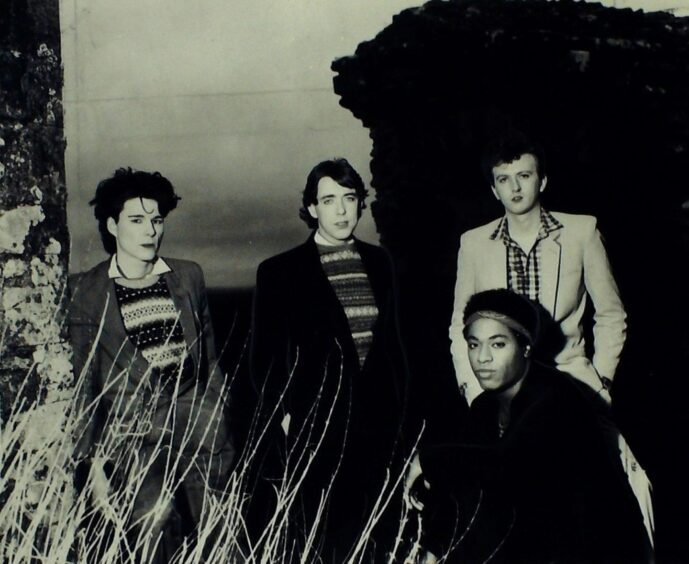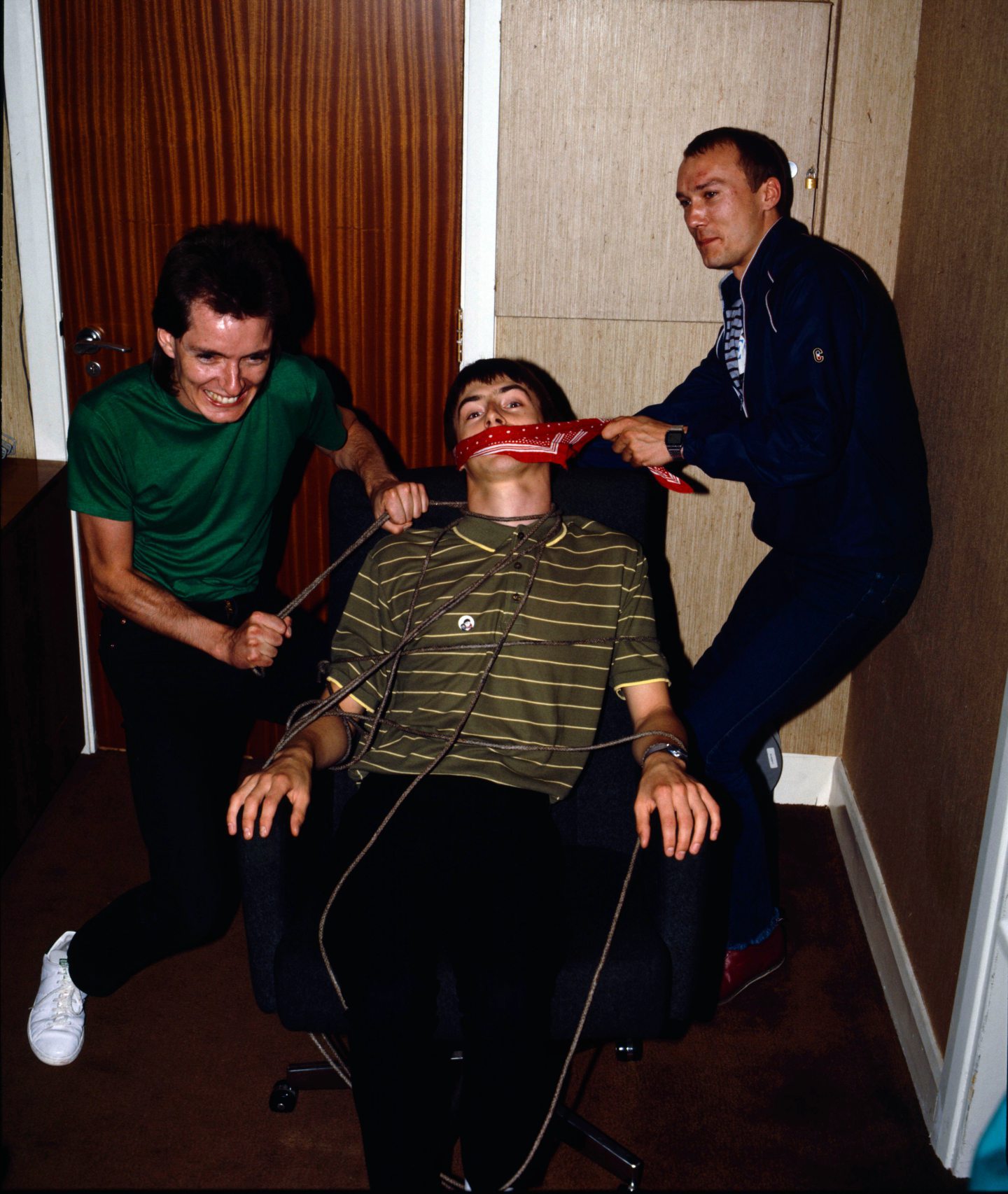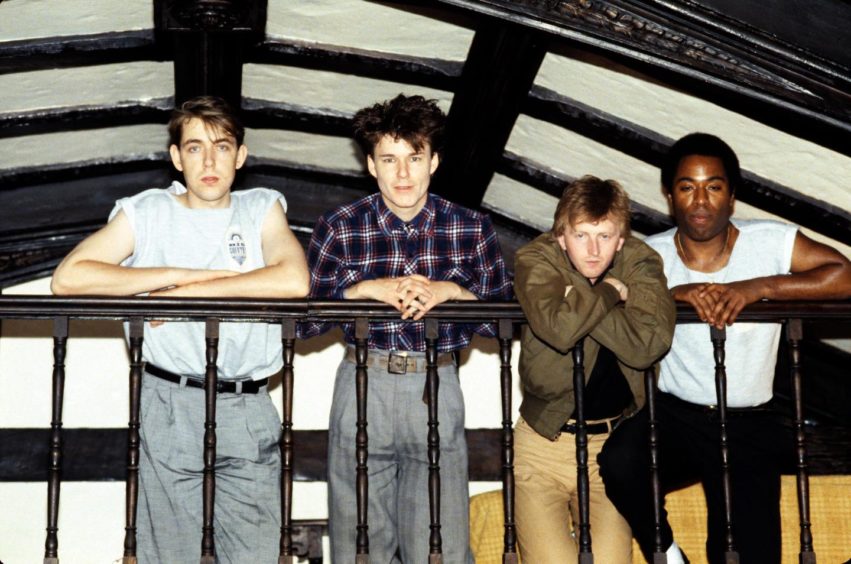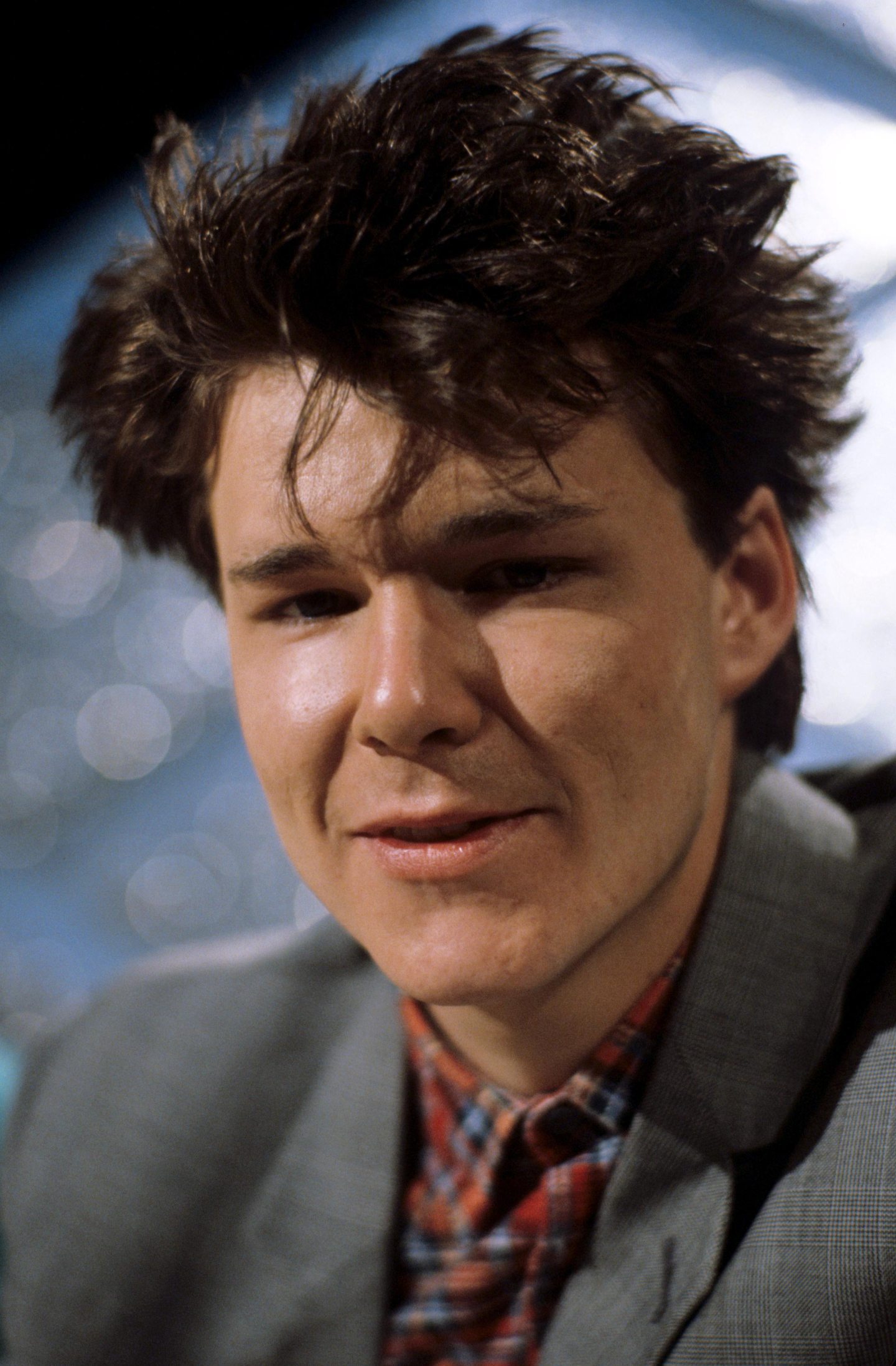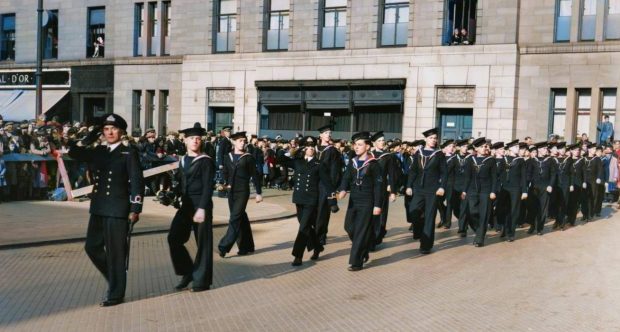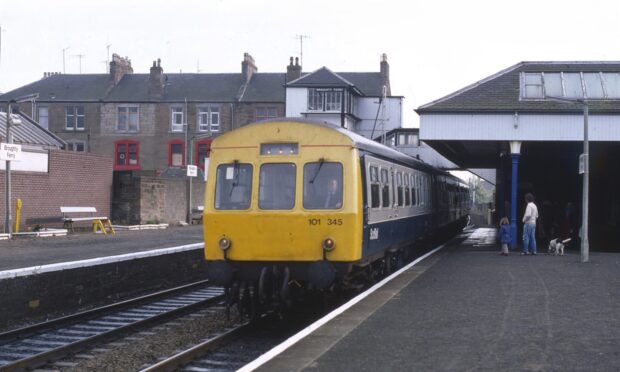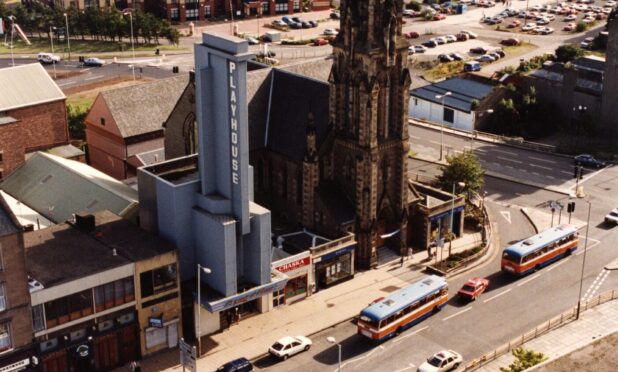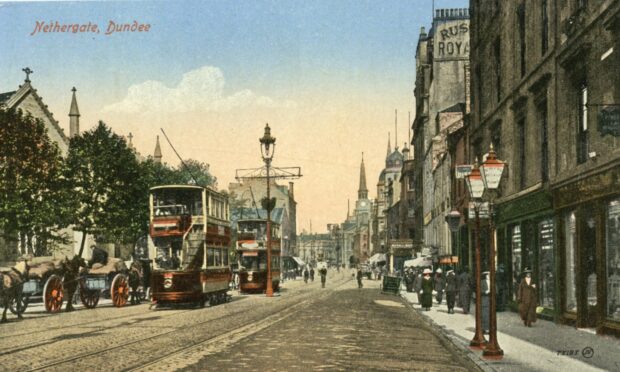When Paul Weller had to choose the support act for The Jam’s farewell gigs, he picked someone whose talents he admired – Fifer Stuart Adamson.
The Modfather’s respect for the “genuinely talented” Adamson was so great he asked the son of Crossgates, and his new band, Big Country, to play the historic Wembley dates in December 1982.
Big Country were at the start of their musical journey while The Jam were closing the book on a career that started in 1972 and spawned classic anthems including Going Underground, That’s Entertainment, The Eton Rifles and A Town Called Malice.
Adamson said: “We are really looking forward to this.
“It’s expected that almost 40,000 people will be at the concerts.”
Stuart Adamson is one of those genuinely talented people. He cares as well, and that matters.”
Paul Weller
By the time Adamson put Big Country together in 1981, he had already been a successful musician for a number of years, having formed The Skids at the age of 18.
Hooking up with guitarist and long-time friend Bruce Watson, an early Big Country line-up also featured Clive Parker and brothers Pete and Alan Wishart.
They were soon replaced by bassist Tony Butler and drummer Mark Brzezicki.
Big Country’s first single, Harvest Home, was released on September 17 1982 but the track struggled into the UK chart at just 91 after selling just 6,000 copies.
The band toured the single heavily up and down the country in small clubs like Valhalla’s Disco in Aberdeen, Fat Sam’s in Dundee and Coasters in Edinburgh.
Meanwhile, on October 30 1982, Paul Weller announced his intention to disband The Jam to explore new musical possibilities after a short concert tour of the UK.
The Beat Surrender 82 Tour would start at the Apollo Theatre in Glasgow with the highlight being five nights at Wembley Arena which would be the last shows.
So was Big Country being chosen a surprise?
Weller had voted The Skids his best group of the year and Adamson his favourite guitarist in an NME poll in January 1981, before the punk band dissolved.
Weller gave his take on Harvest Home
Weller spoke about his admiration for Adamson and his hopes for the future before the tour to Jackie Whitburn, who was the editor of Big Country’s official newsletter.
Weller, who was still 24 at the time, told Country Club that he liked Big Country’s debut single, Harvest Home, although he thought it sounded rather like The Skids.
He said: “If the single had Jobson singing, it would have been The Skids.
“I think it was a shame they split up – they had not reached their full potential.
“But I hope the new band does well. Stuart Adamson is one of those genuinely talented people. He cares as well, and that matters.”
Weller admitted he was not relishing the thought of performing.
He said: “I have lived with the fact that we are splitting up for the last few months and I’m used to it now – and I am quite happy about it.
“I think we have achieved all we can. It is best to leave while you’re still on top but I will still give my best for the last dates.
“I never hold back, whatever the situation.”
Why did he decide to break up the band?
He said: “The easiest thing would be to carry on.
“We know we could go on, but there is no challenge and no pleasure from what we are doing.
“I don’t want to end up like all the rest, carrying on for the sake of it, with people only remembering you for the things you did in the past.
“Take The Who – they will be splitting up.
“They’ve gone on too long. A lot of the good things they’ve done will be overlooked.
“Their last 10 years have been rubbish.
“I have had a lot of experiences, considering my age, and I’ve seen a lot of different things but maybe I’ve not enjoyed myself as much as people my own age have done.
“Now I need that bit of space, just for me as a person.”
Weller said he would not be on stage singing old Jam hits when he was close to 40.
He said he didn’t like to think about growing older but still wanted to make records of his own, although he had no definite plans for any releases at the moment.
“I still want to be successful, as long as I can enjoy it and get something out of it for myself.
“I just want to do it in a more relaxed way. I don’t think I can say that anything I do in the future will be better than The Jam.
“It will be different, although people are bound to make comparisons.”
Big Country won new fans at Wembley
Resplendent in their trademark checked shirts – Big Country really came to prominence on the back of supporting The Jam on their farewell tour.
Tickets were £6 and £5 for the 10,000-capacity Wembley Arena.
Big Country’s set list included songs from that now legendary 1983 debut album, The Crossing, including 1000 Stars, Close Action, Harvest Home and Fields of Fire.
The Jam went out at the very top of their game.
Bass player Bruce Foxton described them as being “among the best gigs we ever did”.
Little wonder, then, that due to the overwhelming demand for tickets extra dates were added at Bridlington Spa, Manchester, Birmingham, Guildford and Brighton.
The final show, at the Brighton Centre, finished with 24 songs.
And that, as they say, was that.
Big Country certainly acquired many new fans back in December 1982.
Their second single, Fields Of Fire, made the Top Ten on its release in February 1983 before The Crossing went on to sell more than two million copies worldwide.
Second album Steeltown went to number 1 in October 1984 and Adamson’s lyrics would articulate the plight of Britain’s embattled working class.
The band’s third album, 1986’s The Seer, was another big success in the UK.
Grammy Award nominations, support slots with The Rolling Stones and tours with the likes of Led Zeppelin’s Jimmy Page and Robert Plant all followed.
Driving To Damascus, released in 1999, was the band’s eighth studio album, before Adamson put Big Country on the backburner in 2000 after moving to Nashville.
He died in Honolulu in 2001 at the age of 43.
Weller continued to reinvent himself
Weller remained a strong supporter of Adamson’s work.
Millions were devastated when he broke up The Jam and there are still men of a certain age who haven’t quite forgiven The Modfather for deserting them 40 years ago!
Nevertheless, he held firm, and went on to form the Style Council, leaving behind the punk-fuelled rhythm and blues for altogether more sophisticated jazz influences.
The band split in 1989 and Weller eventually re-emerged in 1991 with the Into Tomorrow single under his own name, before releasing his debut solo album in 1992.
Despite the calls for Town Called Malice, Going Underground and That’s Entertainment, he didn’t perform a Jam song until 2001 live album Days Of Speed.
Over the past two decades he has included crowd-pleasing Jam and Style Council favourites alongside songs from his 16 solo albums when he takes to the stage.
Weller remains one of the most influential voices in British music.

